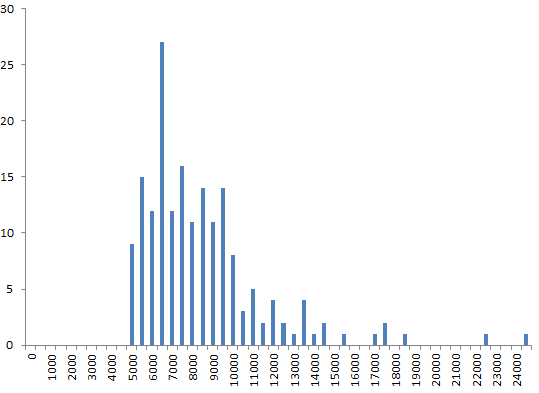I am measuring the read speed of a device that reads files from a microSD card through a custom device (I therefore cannot use benchmarks posted on the internet for this). I'm doing this because I am developing a time-critical application and I need a measure of how much this time varies. However, I've encountered a problem I can't wrap my head around:
I have collected about 1000 datapoints which measure the time it takes to read a 100 Megabyte file in milliseconds.
I'm a novice in statistics but have recently completed a course about inferential statistics and I thought to myself "This is kinda like drawing a sample out of a population with unknown variance and such" but then I realized that while there might not be a maximum time it takes to read a file (Imagine you're theoretically reading data from a microSD card connected with a 5 kilometer cable) there is a minimum value.
This minimum value is bound to how fast the hardware platform is. Theoretically, there is a speed in milliseconds where a file can't be read any faster, but how it currently stands is that I have trouble making normality and other assumptions because of this. The figure below shows the skewness. We can clearly see the measurements do not go lower than 5000 ms, but there are enough outliers to the right.
How should I deal with this? Is this still usuable for inferential statstics? Ideally I would like to extract a confidence interval for the read time of this file so we can handle this in our application accordingly.

